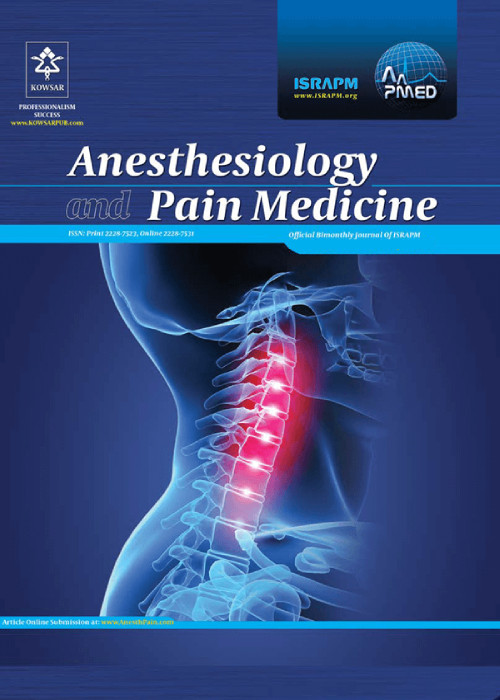Pharmacological Approach for Managing Pain in Irritable Bowel Syndrome: A Review Article
Author(s):
Abstract:
Context: Visceral pain is a leading symptom for patients with irritable bowel syndrome (IBS) that affects 10% - 20 % of the world population. Conventional pharmacological treatments to manage IBS-related visceral pain is unsatisfactory. Recently, medications have emerged to treat IBS patients by targeting the gastrointestinal (GI) tract and peripheral nerves to alleviate visceral pain while avoiding adverse effects on the central nervous system (CNS). Several investigational drugs for IBS also target the periphery with minimal CNS effects.
Evidence of Acquisition: In this paper, reputable internet databases from 1960 - 2016 were searched including Pubmed and ClinicalTrials.org, and 97 original articles analyzed. Search was performed based on the following keywords and combinations: irritable bowel syndrome, clinical trial, pain, visceral pain, narcotics, opioid, chloride channel, neuropathy, primary afferent, intestine, microbiota, gut barrier, inflammation, diarrhea, constipation, serotonin, visceral hypersensitivity, nociceptor, sensitization, hyperalgesia.
Evidence of Acquisition: In this paper, reputable internet databases from 1960 - 2016 were searched including Pubmed and ClinicalTrials.org, and 97 original articles analyzed. Search was performed based on the following keywords and combinations: irritable bowel syndrome, clinical trial, pain, visceral pain, narcotics, opioid, chloride channel, neuropathy, primary afferent, intestine, microbiota, gut barrier, inflammation, diarrhea, constipation, serotonin, visceral hypersensitivity, nociceptor, sensitization, hyperalgesia.
Results
Certain conventional pain managing drugs do not effectively improve IBS symptoms, including NSAIDs, acetaminophen, aspirin, and various narcotics. Anxiolytic and antidepressant drugs (Benzodiazepines, TCAs, SSRI and SNRI) can attenuate pain in IBS patients with relevant comorbidities. Clonidine, gabapentin and pregabalin can moderately improve IBS symptoms. Lubiprostone relieves constipation predominant IBS (IBS-C) while loperamide improves diarrhea predominant IBS (IBS-D). Alosetron, granisetron and ondansetron can generally treat pain in IBS-D patients, of which alosetron needs to be used with caution due to cardiovascular toxicity. The optimal drugs for managing pain in IBS-D and IBS-C appear to be eluxadoline and linaclotide, respectively, both of which target peripheral GI tract.Conclusions
Conventional pain managing drugs are in general not suitable for treating IBS pain. Medications that target the GI tract and peripheral nerves have better therapeutic profiles by limiting adverse CNS effects. Keywords:
Language:
English
Published:
Anesthesiology and Pain Medicine, Volume:7 Issue: 2, Apr 2017
Page:
1
magiran.com/p1698355
دانلود و مطالعه متن این مقاله با یکی از روشهای زیر امکان پذیر است:
اشتراک شخصی
با عضویت و پرداخت آنلاین حق اشتراک یکساله به مبلغ 1,390,000ريال میتوانید 70 عنوان مطلب دانلود کنید!
اشتراک سازمانی
به کتابخانه دانشگاه یا محل کار خود پیشنهاد کنید تا اشتراک سازمانی این پایگاه را برای دسترسی نامحدود همه کاربران به متن مطالب تهیه نمایند!
توجه!
- حق عضویت دریافتی صرف حمایت از نشریات عضو و نگهداری، تکمیل و توسعه مگیران میشود.
- پرداخت حق اشتراک و دانلود مقالات اجازه بازنشر آن در سایر رسانههای چاپی و دیجیتال را به کاربر نمیدهد.
In order to view content subscription is required
Personal subscription
Subscribe magiran.com for 70 € euros via PayPal and download 70 articles during a year.
Organization subscription
Please contact us to subscribe your university or library for unlimited access!


